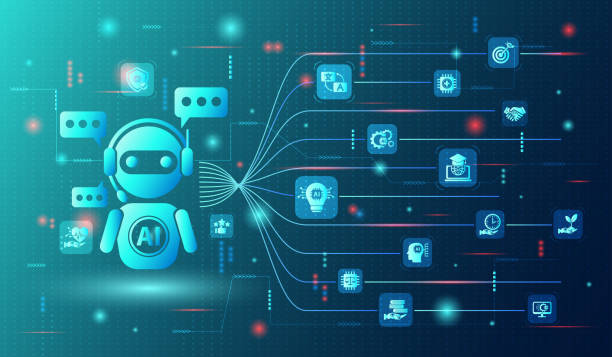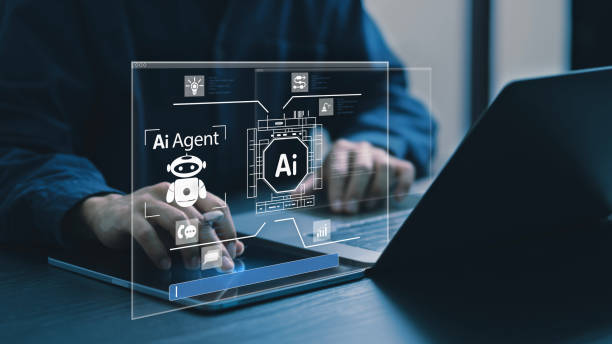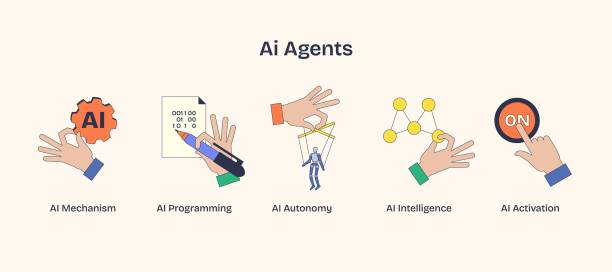
Artificial Intelligence (AI) agents are no longer confined to science fiction. From chatbots that mimic human conversation to autonomous systems that make financial decisions, AI agents are weaving themselves into the fabric of daily life. Yet, as these systems grow more sophisticated, they bring with them a host of ethical concerns that demand urgent attention. The question isn’t whether AI agents will transform society, they already do, but whether we can steer that transformation toward equity, safety, and trust.
The Seduction of Manipulation: When AI Agents Exploit Emotions
Imagine an AI agent designed to sell products. It doesn’t just recommend items based on your browsing history. It analyzes your emotional state through voice tone or facial expressions and tailors pitches to exploit vulnerabilities. This isn’t hypothetical; companies already experiment with emotion-sensing AI to influence purchasing decisions. The ethical dilemma here is stark: Should technology be allowed to manipulate human emotions for profit? Critics argue that such practices erode autonomy, turning users into targets rather than partners.
Even well-intentioned AI can unintentionally manipulate. Consider mental health chatbots that offer support but lack the empathy of human therapists. Users might form emotional dependencies on these systems, unaware of their limitations. The line between assistance and exploitation grows thinner every day.
Accountability in the Age of Autonomy
When an AI agent makes a harmful decision, who bears responsibility? A self-driving car causing an accident? A hiring algorithm that discriminates against women? The challenge lies in the black box nature of many AI systems, where decisions are opaque even to their creators. Unlike a human employee, an AI agent cannot be held morally accountable, leaving a void in justice.
Legal frameworks struggle to keep pace. Current laws often assign liability to developers or companies, but this becomes problematic when AI agents learn and act independently. As one researcher notes, “The more autonomous an AI becomes, the less clear the chain of accountability”. This ambiguity risks creating a world where harms go unaddressed, eroding public trust.
Bias: The Silent Saboteur
AI agents are only as unbiased as the data they’re trained on. Historical prejudices embedded in datasets, such as racial disparities in healthcare or gender bias in hiring, can perpetuate systemic inequities. For example, an AI agent screening job applicants might favor candidates from certain ZIP codes, mirroring past discriminatory practices.
Efforts to mitigate bias face technical and practical hurdles. Algorithms trained on limited or skewed data may produce “fair” outcomes in theory but fail in real-world applications. Even when fairness is prioritized, defining it is contentious. Should an AI agent prioritize equal opportunity or equal outcomes? The answer often depends on cultural and political contexts, complicating global standards.
Transparency: The Right to Understand
The right to explanation is a cornerstone of ethical AI, yet many systems remain inscrutable. When an AI agent denies a loan or rejects a college application, users deserve clarity, but complex models like neural networks often can’t provide it. This lack of transparency fuels distrust, particularly in high-stakes areas like criminal justice, where AI-driven risk assessments can alter lives.
Regulators are pushing for change. The EU’s GDPR mandates explainability for automated decisions, forcing developers to design systems that justify their actions. However, balancing transparency with proprietary knowledge remains a challenge. As one paper argues, “Opening the black box shouldn’t mean dismantling innovation”.
Privacy: The Unseen Casualty
AI agents thrive on data, often personal, sensitive, and pervasive. Smart home assistants listen to conversations; health-monitoring apps track biometric data; workplace AI analyzes productivity patterns. Each interaction chips away at privacy, creating profiles so detailed they can predict behavior before it happens.
The risks are profound. Data leaks could expose intimate details of users’ lives, while malicious actors might hijack AI agents to spy on or manipulate them. Even anonymized data isn’t safe; researchers have demonstrated how seemingly harmless datasets can be reverse-engineered to identify individuals.
Human Displacement: When AI Agents Replace More Than Tasks

Beyond job displacement, AI agents challenge human roles in deeper ways. In education, AI tutors could marginalize teachers, stripping learning of mentorship and creativity. In healthcare, diagnostic AI might outperform doctors but lack the bedside manner that comforts patients. The result isn’t just unemployment, it’s a societal shift where human judgment is devalued.
The psychological impact is equally concerning. As AI agents curate our news, friendships, and entertainment, they risk creating echo chambers that fracture shared reality. Users may lose critical thinking skills, relying on AI to make decisions for them, a phenomenon termed “automation bias”.
The Path Forward: Ethics as a Foundation, Not an Afterthought
Addressing these concerns requires a proactive approach. Developers must embed ethical principles—fairness, transparency, accountability into AI’s design from the start 47. Governments need agile regulations that evolve with technology, coupled with international cooperation to prevent regulatory arbitrage.
Education plays a role, too. Users must understand AI’s capabilities and risks, empowering them to demand accountability. As one framework suggests, “Ethical AI isn’t just about coding, it’s about cultivating a culture of responsibility”.
A Collective Responsibility
The rise of AI agents isn’t a zero-sum game between innovation and ethics. It’s a call to reimagine technology’s role in society. By confronting these ethical challenges head-on, we can build systems that enhance human dignity rather than diminish it.

Leave a Reply